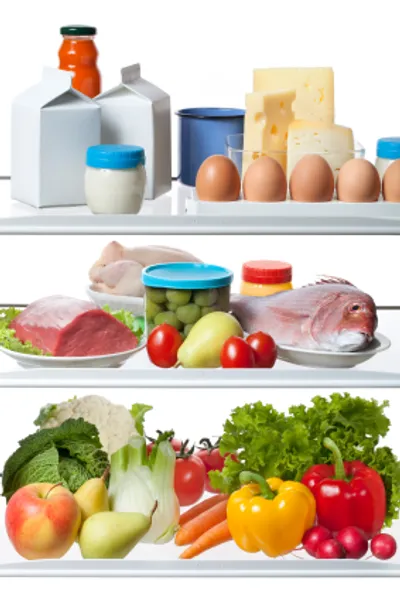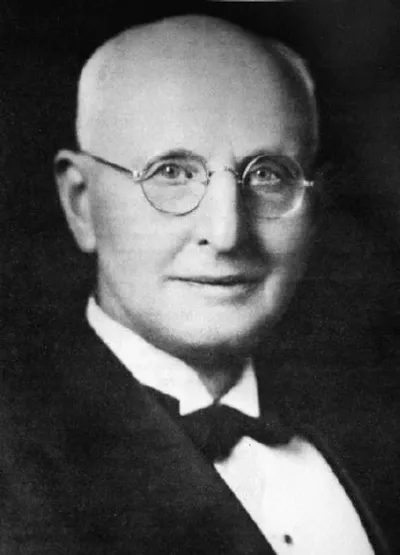I routinely ask two questions pertaining to antibiotics: how many times have you taken them in the last ____ years, encouraging people to fill in the blank. My idea of “not very often” is 20 years ago: at that frequency, perhaps an individual has re-populated their normal gut flora, if they have a hope of ever restoring normal, which is an unanswered question.
How do I get to GOOD?
Here’s the million dollar question, because most large medical clinics have switched to “efficient” thyroid testing, which I would call perhaps efficient but in the long term, absolutely insufficient. Bare bones testing checks just the TSH (the messenger from the brain’s control center, turning on thyroid hormone production) with a “reflex to T4”, the free T4 only ordered if the TSH crosses a worrisome threshold, usually set too high, in my opinion. Such testing will identify “overt” hypothyroidism, namely when there is an elevated TSH and a sub-normal T4 level.
Unraveling The Modern Diseases: Autoimmune
In autoimmune disease a person’s own immune system turns on itself. Antibodies within our immune system are normally our defenses against injury (healing a cut) or intruders (viruses or bacteria) or chaos (growing cancers), but sometimes a body will make antibodies set out to attack the actual tissues of the body itself. We can identify autoimmune antibodies to tissues on simple blood tests
I have about 45 minutes each work day during which I choose to listen to podcasts relevant to the work I love to do with my patients. A recent fave podcast broke down a question common in any medical practice: how does a given individual LOSE or GAIN fat in their body? The approach is so logical and so comprehensive that I found it immensely appealing and just had to share it, so here goes.
“I want some of what she’s having, please!” David pleaded with me for help with his sleep troubles after watching his newly hormone-taking wife, wake refreshed after yet another night of good sleep. Obviously, the hormone replacement which can enable a woman to sleep blissfully all night would not be the solution needed by her husband!
“What can I do to protect myself against the coronavirus?”
Be calm, pay attention, and be pro-active.
Stay six feet away from anyone outside your immediate household.
Wear any kind of a mask when you’re out in public.
Wash your hands twice as often as you think you need to, wear gloves or hand-sanitize when you’re out in public.
Has it ever happened to you? You know the word you want, but it takes its own sweet time finding its way from brain to mouth. Or maybe it was just a name: at a party you start to introduce two of your friends to each other and you can’t remember one person’s name–and it’s usually the name of the person you know best!
If you have ever had reason to be concerned about the health of your brain, and you’re in our part of the Northwest, please join us
While “any exercise” is better than none, there is a world of difference when it comes to the benefits derived from different types of exercise.
After years of struggling with sleep, Robert happily reported that he had found a great sleep aid available at his local drug store, a product that seemed to help him get to sleep and stay asleep quite regularly. I discovered Unisom™ on his list of medications and supplements. He hadn’t even checked off symptoms related to sleep, since he felt his problem was so nicely solved.
I hope you have been enjoying the Break Free Summit with its abundance of useful information to support a healthy life, at any age!
I’ve created a special file of my favorite, if a bit unusual, tips for re-setting your hormonal managers. Add these steps to your healthy lifestyle and I expect you’ll notice a big difference.
Please enjoy, and let me know if they help how you feel!
Tuesday, June 26, please join us for an evening of discussion and simple steps you can take to De-Stress Your Brain!
Did you know that modern life is challenging in ways that are more stressful than being chased by a lion?
If you are curious, skeptical or eager to learn more, please join us for our June 26 talk!
I was speaking to a group of elders interested in end-of-life issues, some of whom are caretakers for people with dementia. They were interested in Alzheimer’s reversal, generally speaking, for some of their clients. After a few general questions, Nan turned to me and said she wanted to get practical, “Given that this is an epidemic we’re all facing, what can we do to avoid dementia?”
We’ve heard a lot of discussion of fasting in general and intermittent fasting in particular, with an appropriate but confusing array of intermittent fasting options.
Misleading title, but it caught your eye perhaps. I recently attended the Who Wants to Live Forever? conference in Iceland, and enjoyed two full days of interesting speakers, gave a talk myself, and on top of all that enjoyed several days roaming around Iceland. I’ll share the highlights. (The title could just as be who wants to read forever: reader alert—long article ahead.)
Late June in the Rogue Valley is the perfect part of summer for getting outside. Have you wondered who’s right, your mother (“Go play outside!”) or your dermatologist (“Avoid the summer sun ”)? The truth is somewhere in between, although I’ll mostly go with Mom. There’s a lot to say about the sunlight, but let’s keep it simple.
While the health details of each individual are unique, it is also true that most healthy people share common habits that I consider essential to creating and sustaining health. At some point in a first appointment, I like to touch on the components I prioritize for creating good health.
“P.S. I’m over 50 and one or more of the following is also true about me: high blood pressure, my waist is bigger than my hips, my waistline is bigger than my hips, I’ve been overweight for more than five years, I can lose weight repeatedly—but I always regain it, my triglycerides are high on my cholesterol test, my blood sugar is a little high, I am a woman who has had babies weighing 9 lbs or more.”
In the second month of the year, stores think about paper hearts and the medical calendar tells us that February is Heart Health Month. While we can agree that there are certain micronutrients that are good for heart health (magnesium and its best delivery system: chocolate), the medical world has not come to a clear understanding of what causes heart disease.
Physiology
I hadn’t been to Las Vegas in probably 40 years, but the 2016 Anti-Aging conference had some compelling speakers, so there I went. Surprisingly, the changes were mostly good: less cigarette smoke walking through the casino and three restaurants in our hotel that made it easy to order gluten-free meals, with wild-caught salmon and grass-fed beef. The hotel gym had rowing machines!
August has been so busy! After an information packed weekend with Dr. Bredesen in California, I was home just long enough to catch up, pack and head to Boulder (first time!) for the 2016 Ancestral Health Symposium.
Just this week in the news one of the brain exercise programs announced some great results with brain training games. The current study was a re-analysis of former data collected over a ten-year period observing almost 3000 healthy older adults.
How is your brain rejuvenation program going? In the first article here, I described the basic lifestyle habits associated with improved and maintained brain function. Specifically, let’s talk about each step and where to go from here.
We absolutely need and rely on the hormone insulin, but only when it stays in its sweet spot: just enough, not too much. Too much insulin has a direct adverse effect (obesity, type 2 diabetes) and many far-reaching effects, including an increased risk of cancer, Alzheimer’s Disease and more.
Good sleep is magical, right? We drift gently from the world as we know it and enter another realm. We may battle dragons or empty bed pans or may remember nothing at all. We may sleep through a fire siren or the alarm clock, but we can be awakened with enough effort. And then, we return to life with our brains and attitudes refreshed.The world is a sunnier place, jokes are funnier, and everything falls into place. Turns out that inside your body everything is just as happy, and it’s primarily the work of the melatonin that made your sleep so restful.
Did you know that November is National (US, I presume) Alzheimer’s Awareness Month? Actually every month is about a dozen things, but I’ve been ruminating on dementia recently, so it’s time to share some more thoughts.
Actually that title is a little bit of a misnomer, let me explain. I gave a whirlwind talk on 23andMe interpretations for a local group on Saturday night, and realize now that it was way too big a topic to tackle in just an hour. Thanks to all those sturdy participants who stayed with me, but it was a fast and bumpy ride!
Let’s talk about moving weight. How much weight can you lift? carry? Think about how much weight you move around when you climb stairs. You need strong muscles to keep moving yourself around with agility and ease. As I have talked about elsewhere on this site, we all tend to lose muscle strength and muscle size as we get older, and that process is called sarcopenia.
Thanks to Aldo Baker and the other folks at Fix.com for this wonderful infographic on finding low mercury fish!
The only way to know whether your current mercury levels is to be tested. I use urine tests in my practice, and recommend cilantro in various forms as a good detoxifying food.
Everything we put in our mouths affects the health of our brains. What we are learning now is that sweets don’t appear to be good for our brains, while healthy fats are good brain food. The story, however, gets much more complex than that.
Thyroid – that little butterfly shaped gland at the base of your front neck (under the knot of your bow-tie?) produces thyroid hormones that impact and interact with every other hormonal and metabolic system in the body. Every cell has a receptor for thyroid hormone (and vitamin D, it is said), so thyroid touches everything. Our bodies have finely tuned mechanisms for producing, storing, circulating, and activating thyroid hormones, so it’s no surprise that at times that mechanism can get a little off balance.
Not news to you, perhaps, but saturated fat was never the problem with our diets! Many meta-analyses, op-ed’s and even popular books have detailed the misguided steps we took in 1977 when our federal nutritional guidelines steered us away from fat and towards (unthinkably) carbohydrates to make up the lost calories from trimmed fat.
The Thanksgiving holiday can be the occasion for multiple different over-doing debacles, more so than any other holiday. The eating and drinking are largely focused on one day. The televised football games – and a lucky window of afternoon sun – are perfect inspiration for a pick-up football game!
Let’s re-boot October’s pink message! In the past “breast cancer awareness” has often meant beauty products (some containing carcinogens) labeled with pink ribbons to promote mammograms. In the future, let’s think of October as support for women – all women – with breast cancer prevention, primary and secondary, better research into the causes of breast cancer, industry regulation where necessary, and comprehensive programs for women enduring breast cancer treatment.
(If you missed last week’s post, Sleep Comes First, check here to read some of the reasons that getting enough sleep should be your #1 health concern!)
One of the most exciting presentations I enjoyed at Paleo F(x) was Dr. Kirk Parsley’s discussion about his success in treating sleep disorders. I enjoyed his first presentation so much that I went to his second as well, and have since been in communication with him, happy to learn that he will soon have a website sharing his great information with everyone. I’ll let you know when I see it.
I’m so excited to be heading to Austin for the Paleo event of the year. Multiple simultaneous stages make the choices difficult: listen to a panel of experts or hear one in-depth topic? Learn to lift a heavy weight or do some fancy Paleo cooking?
Should you take CoQ10?
You may have heard of people discussing CoQ10, the shorthand name for the compound Coenzyme Q10. CoQ10 is a fat soluble anti-oxidant compound that we make in our own bodies, given the proper nutrients. We rely on CoQ10 in the production of ATP, our most basic source of energy in the body and CoQ10 also helps us when we’re challenged by infection or immune system imbalance.
A ketogenic diet is one that encourages your body to rely less on sugar-based fuels and rather to turn to fat and ketones (produced in the liver by metabolizing fat) for fuel.
I recently spoke at the Weston Price annual conference, summarizing everything I could fit in about preventing breast cancer in a relatively brief presentation that several folks have asked me to put on the website.
I’m going to start here with the summary of preventive actions and write a separate article on the controversies and other information included in the talk. Let’s start with what you can do to prevent breast cancer.
Who would think that a vitamin could have such a history of praise and denial, confusion and celebration? Vitamin K2 will hopefully find its right place in history once more people get a chance to read Vitamin K2 and
The recent Weston A Price Foundation’s annual Wise Traditions Conference (Atlanta, November 8-10, 2013) was an event rich with wisdom, fantastic food, entertainment, and friendly faces new and old. I’d like to share with you a take-away pearl from each of the sessions I attended.
Testing for food allergies is controversial. Conventional and integrative physicians line up on opposite sides of blood testing, skin testing, and the ultimate issue of whether food allergies are a serious problem or not. However, any physician who has spent much time listening to patients knows that food allergies are real and that food allergy tests are not always reliable.
Reading on this site, I see, under “Eating for a Healthy Pregnancy”, under the Foods to Avoid list is
The last part of my series addresses the fitness questions and challenges for those who are metabolically healthy, who even carry the right amount of body weight, but want to know what nutritional steps they can take to optimize their performance.
When folks tell me they’re stressed, or that they wake frequently in the wee morning hours, I wonder if they aren’t firing up their adrenal glands a little too early for the day’s work. While we arrange for testing of that hypothesis, my choice of supplement – tried and true with many patients – is Integrative Therapeutics Cortisol Manager.
There is a world of difference between the opinions of conventional physicians and integrative physicians when it comes to the subject of our adrenal glands. In medical school I received excellent instruction on the anatomy and physiology (A&P) and healthy functioning of the adrenal glands. In case you skipped that lecture, they are small glands that sit atop our kidneys and are divided into two hormone-producing regions.
What perfect timing! Just as Americans are heading to the beaches and mountains for some added exercise and recreation, the press headlines let us know: we are indeed exercising more, as we’ve been told to do, but unfortunately, we are no thinner for it. Our poundage is expanding despite the increased exercise!
Your Fitness – for the Metabolically Challenged
“Metabolically Challenged” means that you weigh more than you’d like to and that one or more of the following is true:
We’ve learned our lesson – the liquid diets of the 1970’s wreaked havoc with dieters’ health and even cost some their lives. In my own practice, I have had several patients whose liquid diet damage to kidneys and gall bladder led them to consult an alternative and integrative approach. So we’ve learned our lesson, or have we?
What is your level of fitness? Consider your mental, physical, emotional, and even spiritual health – how fit are you? My training did not actually focus on “health” until I first studied Classical Homeopathy over 20 years ago. I realized it was a concept lacking from my professional medical education and found it interesting to consider: how does one define health?
Glutamine, or L-Glutamine, is the most abundant amino acid circulating on its own in the body. Glutamine is an important component of a functioning immune system, the maintenance of a healthy intestinal lining, as well as certain mental and emotional processes. It can be found in many foods and under “routine” circumstances, the body seems to have adequate supply between what is eaten and what the body makes for itself.
Twice over the last month, articles in the general media have reported that the link has been found between certain foods (red meat and eggs) and heart disease, as if that causation is known and undisputed. The real “behind the headlines” story is that the titles of the articles and the impact of the actual science seem quite far apart.
The Paleo Diet has been inspired by the study of our own human history. The Paleolithic Period began about 2.6 million years ago with the first use of stone tools by pre-historic humans and ended about 10,000 years ago. In the Paleolithic Period, humans formed small groups and survived by hunting and gathering food. The end of the Paleolithic Period is marked by human groups settling in one era, introducing agriculture, religion and culture that has survived to the current day.
Breakfast Now that you’ve had your tea…
The second session of my class on losing it (weight, inches or inflammation – or all three!) is underway, and for those who didn’t make it into the class, I want to talk about the main focus of the class: reducing carbohydrate intake.
Do you have a friend or family member who has been diagnosed with colorectal cancer? For most of us, the disease has touched someone close to us or in our lives. Colorectal cancer is the third most commonly diagnosed cancer in the United States in both men and women. This year we can expect to see over 100,000 new cases of colon cancer and over 40,000 new cases of rectal cancer. Over a lifetime, Americans have about a 5% (1 in 20) risk of colorectal cancer.
The best way to evaluate the quality of your sleep is to look at the quality of your wakefulness during the day. Do you function with alertness at your job and while driving – or do you tend to fall asleep without a constant caffeine boost?
If you are someone who can work creatively, drive dependably and carry on quiet activities (reading, conversations) without falling asleep, you might be getting better sleep than you realize.
Success at following a low carbohydrates life style comes most readily with a few cautionary suggestions.
More than a probiotic!
Interest in the Mediterranean Diet began with the attention of Ancel Keys in the 1950’s when he learned of the historically low incidence of heart disease in Italy. Keys described the diet and then made an error of scientific judgment. He assumed the post-war, low-cholesterol, low-fat diet he saw was the cause for the low rate of heart disease.
From 2004 to 2012, federal and state agents have conducted armed sting operations across America, raiding farms and issuing criminal warrants for farmers and shopkeepers from California to Pennsylvania. A few were even arrested. Were they after drug smugglers, perhaps? Or pursuing a threat to national intelligence?
Lucky parents have the opportunity to prepare themselves for a pregnancy, selecting the ideal time for the pregnancy and optimizing their health before conception. It is impossible to start too soon. Although the sperm and egg cells are only in production for a few months, the longer the body producing those cells has enjoyed living in a healthy manner, the healthier the baby will be.
Fad diets come and go, but in my practice, I follow the science more carefully than I follow the fads. In doing so, I have been tremendously impressed with the work of Gary Taubes, who has meticulously detailed the science behind the low-carbohydrate diet trends. He is not alone.
While Candida albicans—a type of yeast species—is normally found in our digestive tract and on our skin, it can easily grow out of control when fueled by a combination of dietary and lifestyle factors. Millions of people suffer from the effects of Candida overgrowth that result in or complicate a wide range of conditions and symptoms.
Not surprisingly, gluten comes from the Latin word for glue. Wonderful qualities of elasticity and buoyancy derive from gluten’s self-adherent stickiness.
I’ll start right off with admitting that it’s a little naive to imagine that there is a single “Ideal Diet” that works for everyone. From decades of clinical practice, individual variability is the principle of reality that is most often confirmed in my clinical experience. So I encourage you to consider this diet as a set of guidelines, and perform gentle personal exploration to determine which form of the eating plan works best for you.
For decades, we have been pummeled by the message that saturated fats such as those in butter and meat are bad for us and that a low-fat diet is good for the heart and blood vessels. But where did this information about fat and cholesterol come from, and is it really accurate?
Before we answer that question, let’s take a look at the different types of fats and the foods from which they are derived.
One of the fastest growing nutritional organizations and websites is the Weston Price Foundation, named for Dr. Weston A. Price, a Cleveland dentist who traveled the world in the 1920s, looking for the healthiest people on earth. What does modern nutritional science have to learn from a world traveler of a previous century?


